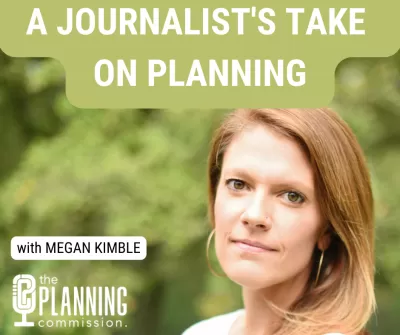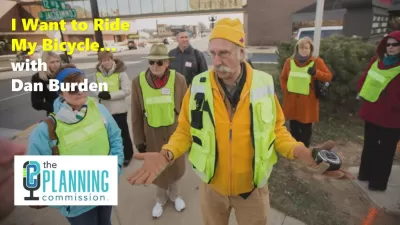Kimble’s interest in topics related to urban planning spawned from research and writing about food systems in the borderlands of Arizona. She then moved to Austin in the midst of the city’s update of its Land Development Code.

Austin, Texas, is feeling the pressures of intense growth and lack of affordable housing. This has impacted land development, transportation, food systems, and fair housing efforts. Megan Kimble has been on the front lines, chronicling these efforts and unearthing the linkages among them since relocating to Austin from Tucson in 2017.
“The best part about being a journalist is you get to inhabit other people’s professions and worlds, and once you get tired of them you can move onto another topic,” said Kimble.
Kimble’s 2015 book Unprocessed unearthed the underbelly of our food systems. From that perspective, she began to understand how access to opportunities in cities was predicated on where people lived.
“A lot of attention was paid to physical access to food,” Kimble told The Planning Commission Podcast. “That’s really important but I started covering transportation because, if you drive, then you can have access to all the things that you need. If you rely on public transportation, you are much more dependent on the resources that are around you in your neighborhood.”
This also ties into zoning policies, as Kimble has learned in covering the $10 million, decade-long effort by the City of Austin to update its land development code.
Kimble outlines what is occurring in Austin related to the code update. “The biggest thing that has prevented a new land development code is NIMBY opposition,” she said. Protest rights, which are also rooted in racism and segregation, are granted under Texas law and have played a major role in stalling the effort in the courts.
“It’s largely white, wealthy homeowners who have an enormous amount of power by state law and that has gummed up the whole process such that city leaders have not been able to get anything done,” said Kimble.
The sprawl stemming from the City of Austin’s inability to grow at higher densities has led Texas DOT to plan for wider highways around and through Austin.
“What TxDOT is doing is fairly rational” due to the demand created by the sprawl, said Kimble. That's doesn't mean they aren't skirting environmental laws and ignoring the lessons learned after 60 years of highway building and expansion with little effect on reducing congestion.
The Planning Commission is a spirited debate by planners, for planners. This independent outlet for all things planning explores the serious and lighter sides of the profession, poses probing and creative questions to guests, and always pairs the episode guest and topic with a choice libation. Listen to the podcast for a special offer from Planetizen.
FULL STORY: The Planning Commission Podcast, Season 2 Episode 14: A Journalist's Take On Planning

Maui's Vacation Rental Debate Turns Ugly
Verbal attacks, misinformation campaigns and fistfights plague a high-stakes debate to convert thousands of vacation rentals into long-term housing.

Planetizen Federal Action Tracker
A weekly monitor of how Trump’s orders and actions are impacting planners and planning in America.

In Urban Planning, AI Prompting Could be the New Design Thinking
Creativity has long been key to great urban design. What if we see AI as our new creative partner?

King County Supportive Housing Program Offers Hope for Unhoused Residents
The county is taking a ‘Housing First’ approach that prioritizes getting people into housing, then offering wraparound supportive services.

Researchers Use AI to Get Clearer Picture of US Housing
Analysts are using artificial intelligence to supercharge their research by allowing them to comb through data faster. Though these AI tools can be error prone, they save time and housing researchers are optimistic about the future.

Making Shared Micromobility More Inclusive
Cities and shared mobility system operators can do more to include people with disabilities in planning and operations, per a new report.
Urban Design for Planners 1: Software Tools
This six-course series explores essential urban design concepts using open source software and equips planners with the tools they need to participate fully in the urban design process.
Planning for Universal Design
Learn the tools for implementing Universal Design in planning regulations.
planning NEXT
Appalachian Highlands Housing Partners
Mpact (founded as Rail~Volution)
City of Camden Redevelopment Agency
City of Astoria
City of Portland
City of Laramie





























